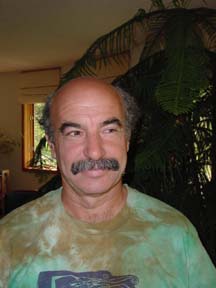From the New York Times
by Andrew C. Revkin / Matthew L. Wald
WASHINGTON — A House committee released documents Monday that showed hundreds of instances in which a White House official who was previously an oil industry lobbyist edited government climate reports to play up uncertainty of a human role in global warming or play down evidence of such a role.
In a hearing of the House Committee on Oversight and Government Reform, the official, Philip A. Cooney, who left government in 2005, defended the changes he had made in government reports over several years. Mr. Cooney said the editing was part of the normal White House review process and reflected findings in a climate report written for President Bush by the National Academy of Sciences in 2001.
They were the first public statements on the issue by Mr. Cooney, the former chief of staff of the White House Council on Environmental Quality. Before joining the White House, he was the “climate team leader” for the American Petroleum Institute, the main industry lobby.
He was hired by Exxon Mobil after resigning in 2005 following reports on the editing in The New York Times. The White House said his resignation was not related to the disclosures.
Mr. Cooney said his past work opposing restrictions on heat-trapping gases for the oil industry had had no bearing on his actions once he joined the White House. “When I came to the White House,” he testified, “my sole loyalties were to the president and his administration.”
Mr. Cooney, who has no scientific background, said he had based his editing and recommendations on what he had seen in good faith as the “most authoritative and current views of the state of scientific knowledge.”
Mr. Cooney was defended by James L. Connaughton, chairman of the environmental council and his former boss.
The hearing was part of an investigation, begun under the committee’s Republican chairman last year, into accusations of political interference in climate science by the Bush administration.It became a heated and largely partisan tug of war over the appropriate role of scientists and political appointees in framing how the government conveys information on global warming.
There's more, hit the link
by Andrew C. Revkin / Matthew L. Wald
WASHINGTON — A House committee released documents Monday that showed hundreds of instances in which a White House official who was previously an oil industry lobbyist edited government climate reports to play up uncertainty of a human role in global warming or play down evidence of such a role.
In a hearing of the House Committee on Oversight and Government Reform, the official, Philip A. Cooney, who left government in 2005, defended the changes he had made in government reports over several years. Mr. Cooney said the editing was part of the normal White House review process and reflected findings in a climate report written for President Bush by the National Academy of Sciences in 2001.
They were the first public statements on the issue by Mr. Cooney, the former chief of staff of the White House Council on Environmental Quality. Before joining the White House, he was the “climate team leader” for the American Petroleum Institute, the main industry lobby.
He was hired by Exxon Mobil after resigning in 2005 following reports on the editing in The New York Times. The White House said his resignation was not related to the disclosures.
Mr. Cooney said his past work opposing restrictions on heat-trapping gases for the oil industry had had no bearing on his actions once he joined the White House. “When I came to the White House,” he testified, “my sole loyalties were to the president and his administration.”
Mr. Cooney, who has no scientific background, said he had based his editing and recommendations on what he had seen in good faith as the “most authoritative and current views of the state of scientific knowledge.”
Mr. Cooney was defended by James L. Connaughton, chairman of the environmental council and his former boss.
The hearing was part of an investigation, begun under the committee’s Republican chairman last year, into accusations of political interference in climate science by the Bush administration.It became a heated and largely partisan tug of war over the appropriate role of scientists and political appointees in framing how the government conveys information on global warming.
There's more, hit the link
powered by performancing firefox

No comments:
Post a Comment